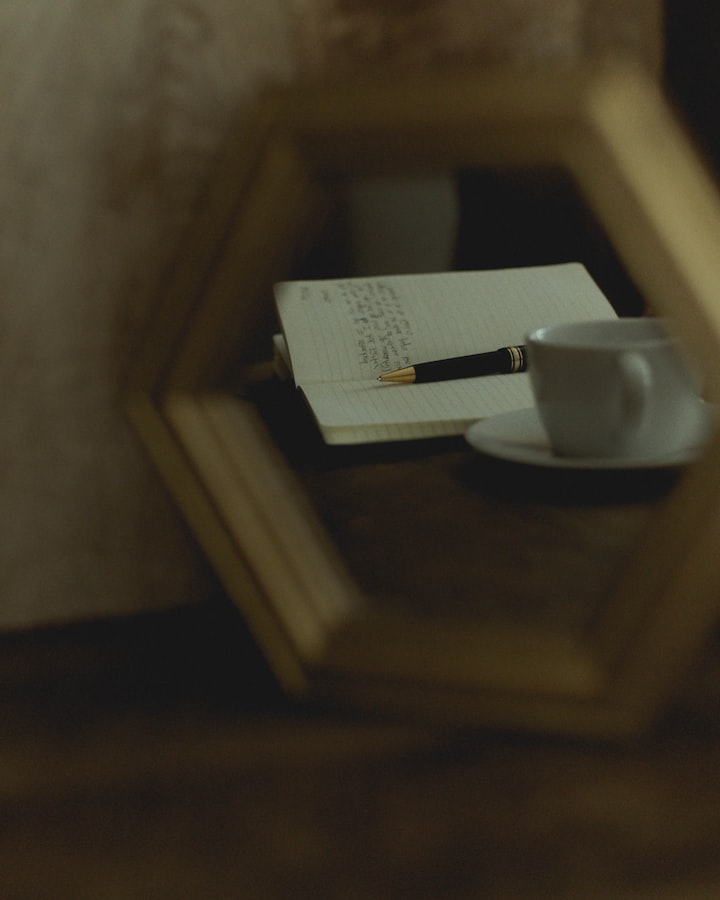5 Ways to Shut Your Inner-Critic Down
How to write even when your inner-critic doesn’t want you to

It ain’t easy being a writer.
It’s even worse when there’s a nagging voice in the back of your mind telling you that you can’t do this, that you aren’t any good, or that no one’s going to read that anyway. And what’s still worse than this, we buy into this, we listen and we believe it.
But we don’t have to, and that’s what this article is all about.
Here’s the deal, I’ve been there before. I know the way that little voice sounds, and how easy it is to buy into the crap it’s saying. But that voice doesn’t have any power you don’t give to it, to begin with. Remember that.
Keep reading, let’s tackle this topic.
№1 Choose progress
First things first, you’re human, celebrate that. You’re going to make a mess of things, you’re going to fall short of goals, you’re going to write things that are bad and sometimes even embarrassingly so. But you know what all of these things are up to if you let them? Growth.
But for them to grow, you have to actively choose to embrace progress a being better than you were the day before — even just moments before. Because growth is growth, and progress should always be your underlying goal.
The more you work toward something, the harder you work at something, the more effort but also smart effort (not just sweat equity but brainpower, hitting pause, reviewing, and figuring out your next steps) the more likely you are to not only succeed but also at improving overall. And improvement is how you surpass your goals.
All of this together is a very smart and very powerful way to completely sidestep your inner-critic. Not ignore, outright, but embrace the truth of who you are and what you’re doing to be better, to improve. Progress is its own strength and its own power. It can be messy, but so what? Just focus on growing and keep moving forward.
№2 Start with a simple goal
Sometimes, all that gets me going is one simple task chased by another. This is partly why I love using lists as an outlining tool and a writing hack. They give me a smaller space to focus on, a smaller task to work at. Instead of staring at a blank page and an endless roll of potential (with all of its nerve-jarring anxiety-inducing pain) I can just focus on one task for right now. And if that’s all I can get done, then it was that much.
What this means for you in your struggle with that pesky inner-critic is this: find a smaller task to focus on, work at that, and then over time let each small task add up to a larger goal, task, or challenge that you’ve accomplished.
Small steps get you there just as much (and maybe even better) than larger ones. Instead of giving attention to your inner-critic, focus on what’s in front of you and do that. Even if it’s simple, small, or doesn’t feel like much. Every great work started as an idea, chased by a few test actions, maybe some cussing, and over time hammering through all of its early versions to its completion. First one thing, then the next, and then the next.
Just focus on what’s right in front of you, and do that.
№3 Use momentum
Another powerful way to overcome your inner-critic is to get going. Just that easy. Just find somewhere to start, and start.
If you’re like me, sometimes your brain and writing need a little warming up before they find their way. All this means in practical terms is, start with one word, follow it by another. Words become sentences and grow into paragraphs, and with enough time and attention who knows what from there.
Sometimes, all you need to do is get started. Find somewhere to dive in and dive in.
This is why I love to keep several projects rolling at the same time. If one thing stalls, then I can hop to another. This keeps me going, keeps plenty of work ahead of me, and plenty of potentials to shift my focus to if I need to.
№4 Keep a record of your accomplishments
And nothing can shut down that inner-critic quite like keeping a running record of what all you’ve already been up against and have overcome.
I’m a huge fan of keeping a journal and keeping a running log of the goings-on in my life. I use mine to cover everything from what’s going on, to what I want to accomplish. But keeping a running log of what you have already done is a very powerful way to remind yourself of who you are.
Maybe this will be a part of your journal writing experience, or maybe it’ll be its own thing. That’s completely up to you, but, however, you choose to do it, keep a record of your accomplishments somewhere.
And when you are having a tough time with things, and feel a bit overly critical of yourself, your capability, and your potential, go to that log, see what you’ve faced and what you have already overcome. Let it motivate you and inspire you, let it light a fire under your butt and push you to move.
№5 Listen
This one might not be the easiest to listen to, but it’s still important. Hard truths usually are.
Here’s the thing, maybe your inner-critic isn’t telling the truth or the whole truth, but there still might be a lesson in what’s going on. It’s your job as a writer and creative to pay attention to these listens when they come along.
So, how do you know this isn’t just more negative self-talk? How do you know there’s a lesson buried in all the criticism?
Two things:
One, down deep, we kind of know right away, don’t we? It hits the gut a bit harder when we know we’ve been only giving half of our best effort on something, or we know we have some more growth ahead of us before we can push through our challenges.
Two, it’s persistent. It keeps coming back, and it’s not quite the same as other negative self-talks. This is more gentle, not trying to outright stop you, but questions either your ability right now, or whether what you’re working on is honest to who you are and what you’re really living through or experiencing or trying to say.
When this happens, pay attention. Don’t ever give negativity too much time or ability to grow, but, when it’s persistent, ask yourself why. Engage it but with some distance. Explore what might be going on, and figure out if there’s any truth to it, and what lessons you might be able to take away from it if there are lessons involved.
Next Steps
Now it’s your turn. Take these lessons, apply them, change the game, and level-up your attitude, your faith, and your belief. Down deep, feel the truth of who you are and what you’re capable of. Own that. Be that. You are what you choose to be, and these choices are always happening. You’ve just got to step up and face this inner-critic head-on.
Now you have the tools you need, the only question that’s left is how you’re going to make use of them.
About the Creator
Gregory D. Welch
Kentucky poet & scribbler. Inspiring creatives to live a creative lifestyle. Creating with courage, passion, & purpose-fueled growth. Progress over perfection.






Comments
There are no comments for this story
Be the first to respond and start the conversation.